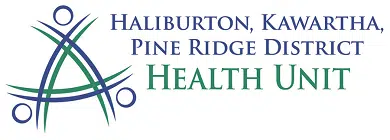The Haliburton, Kawartha, Pine Ridge District Health Unit (HKPR District Health Unit) will offer free Monkeypox vaccines at upcoming clinics this Friday, August 5, and next week for those eligible to get a dose.
The HKPR District Health Unit is organizing these special Monkeypox vaccination clinics at its Port Hope office on August 5 and August 9, as well at its Lindsay office on August 10. Appointments are required and are only open to eligible individuals. These clinics come a week after the first local case of Monkeypox was detected in the HKPR District Health Unit region.
While the risk of Monkeypox remains low, Medical Officer of Health Dr. Natalie Bocking urges everyone who is eligible for Monkeypox vaccine to make an appointment to get one. “There is a safe, effective vaccine approved in Canada that protects against Monkeypox and we want to make it as easy as possible for those eligible to receive a dose to get one,” Dr. Bocking says.
Who is Eligible for the Monkeypox Vaccine
Currently in Ontario, trans- or cis-gender individuals who self-identify as belonging to the gay, bisexual and other men who have sex with men (gbMSM) community can get Monkeypox vaccine if they meet one of these criteria:
- Have had two or more sexual partners within the past 21 days or may be planning to.
- Have had anonymous/casual sex in the past 21 days or may be planning to.
- Have received a diagnosis of bacterial sexually transmitted infection (STI) in the past two months. Examples of bacterial STIs are chlamydia, gonorrhea, and syphilis.
- Have attended venues for sexual contact within the past 21 days, or may be planning to, or who work/volunteer in these settings. Examples of these settings include bath houses or sex clubs.
- Engage in sex for work or may be planning to. Sexual contacts of these individuals are also eligible to receive the monkeypox vaccine.
If individuals meet these criteria, call the Health Unit at 1-866-888-4577, ext. 1507, to book a clinic appointment for the Monkeypox vaccine. For more information on Monkeypox and vaccine eligibility, visit the Health Unit’s Monkeypox Virus web page. After getting the vaccine, it takes two weeks to build protection. During these two weeks, the HKPR District Health Unit encourages people to reduce their number of close contacts, including sex partners.
Individuals who have been identified by their local public health unit as having a high or intermediate risk exposure with someone who has the Monkeypox virus are also eligible to receive the Monkeypox vaccine. These individuals will be contacted directly by their local public health unit.
Monkeypox is a viral disease mainly found in countries in central and west Africa. In recent months, Monkeypox cases have been detected in other countries where it is not usually seen, including Canada. In late July, the World Health Organization’s Director General declared the global Monkeypox outbreak represents a public health emergency of international concern.
Monkeypox is spread through close, direct contact with infected bodily fluids (i.e. lesions, blisters) or respiratory droplets (i.e. coughing). While Monkeypox is in the same family as smallpox, it is less contagious and includes milder symptoms.
Monkeypox symptoms include: rash or blister in mouth and around genital areas; swollen lymph nodes; fever and chills; muscle aches; headaches; and exhaustion. Anyone experiencing the symptoms of Monkeypox should seek immediate medical attention. Monkeypox symptoms can be managed, and people usually recover in two to four weeks.
“Be aware of the signs and symptoms of Monkeypox virus and seek medical attention if you start to experience symptoms,” Dr. Bocking adds. “While vaccines are one form of protection against Monkeypox, you can take additional measures to reduce your risk from the virus.”
The HKPR District Health Unit recommends the following:
- Practice good hand hygiene. Wash your hands with soap and water or use an alcohol-based hand sanitizer.
- Do not kiss, hug, cuddle or have sex with someone who has or may have monkeypox.
- Avoid skin-to-skin contact with Monkeypox rashes or lesions.
- Avoid sharing objects such as toothbrushes, utensils, sex toys or drug equipment.
- Clean and disinfect high touch surfaces (such as door handles and phones).
- Avoid touching bedding and laundry that has been in contact with a person or animal that may have the virus.
- Avoid contact with sick or dead animals
- Use personal protective equipment (PPE) when caring for someone at home who has the virus, including a medical mask and disposable gloves for direct contact with lesions.






